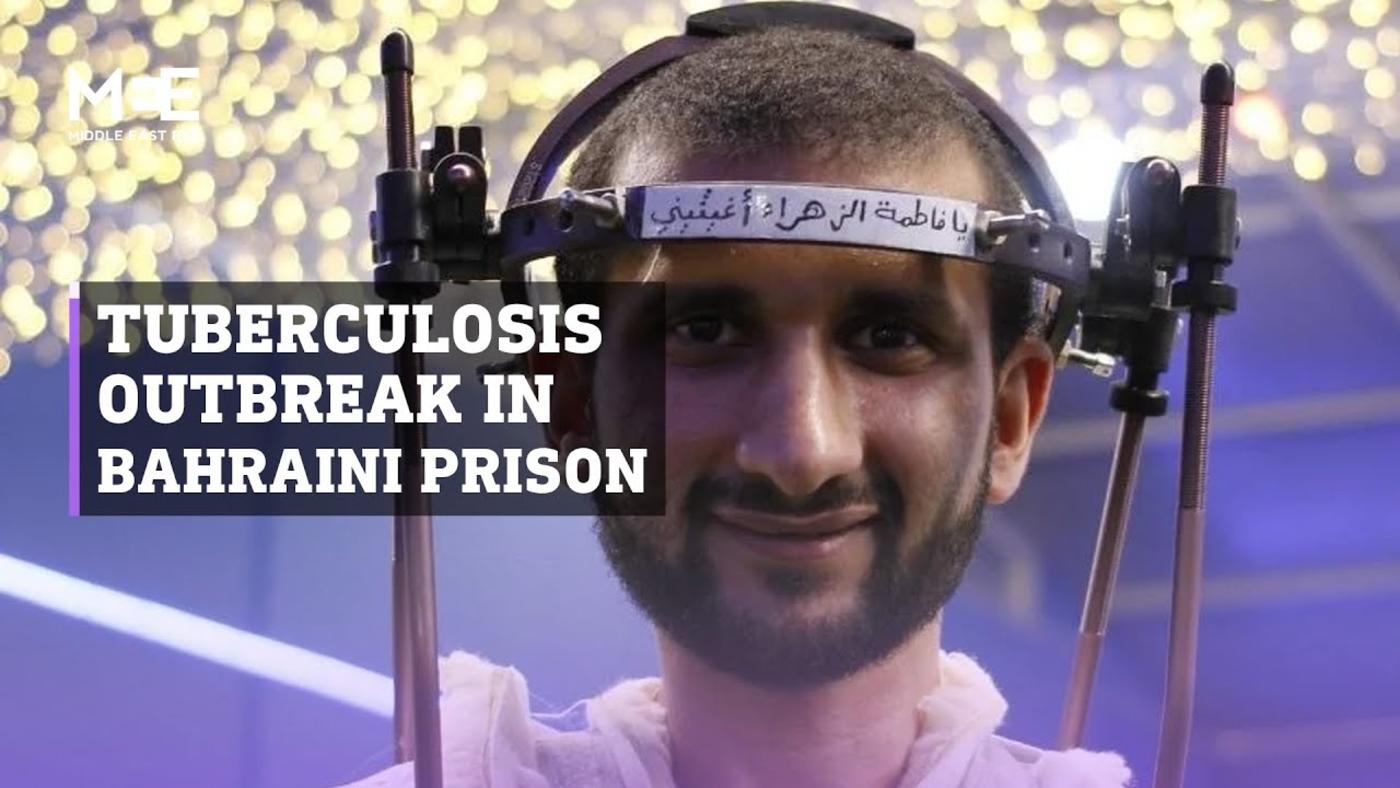Bahraini prison officer 'laughed' as inmates requested help over tuberculosis outbreak
An officer in Bahrain's Jau prison laughed when inmates pleaded for an inmate with tuberculosis (TB) to be transferred for care this week, according to a recording of a detainee heard by Middle East Eye.
The detainees were advocating on behalf of Hassan Abdullah Habib Bati, a political prisoner has serious underlying medical conditions and says he is worried he will soon die if authorities withhold medical care from him.
The recording, which was sent to the UK-based Bahrain Institute for Rights and Democracy (Bird) activist group, comes as concerns of a potential outbreak have emerged after a prisoner with TB was recently released and two detainees who shared a cell with him at various times said they have TB-like symptoms but have been struggling to get help.
The officer, the detainee says in the recording, is aware of the severity of Bati's condition - he has two blood disorders and has been struggling with his health during his eight years in prison - but told inmates, "Let him die of TB".
"An officer took our statements pleading to transfer him to a clinic but then he just walked over to the other officer and they were laughing like nothing is happening," said the detainee whose identity has not been shared to protect his safety. "They kept him in the same facility out of spite."
The inmates, he said, then submitted a complaint to another officer who oversees the building where they are being held, but no action was taken.
Lord Paul Scriven, a Liberal Democrat peer, on Tuesday questioned why Bati was still being held in the prison, given that Bahraini law guarantees inmates suffering from serious medical conditions and whose lives are at risk be released.
"Why has this exemption not been applied to Bati who became infected with TB whilst in prison, leaving him with irreversible damage to his back?" Scriven told MEE.
"He must be released from prison and compensated by Bahrain for the unsafe conditions at Jau prison which led to him being infected with TB and for the subsequent medical negligence he endured."
MEE reached out to the Bahraini embassy in London for comment but did not receive a response by the time of publication.
Neck pain for months
Last week, family members of two political prisoners held in Jau, Sayed Nizar Alwadaei and Mortada Mohmed Abdel-Reza, said the men were suffering from TB-like symptoms but had not been tested or treated.
Alwadaei was held in solitary confinement for three days after he refused to return to his cell unless he was given urgent care. His mother, Hajar Mansour, was threatened with arrest when she came to the prison to try to secure help for him, according to Sayed Ahmed Alwadaei, his brother-in-law and Bird's advocacy director.
MEE understands that detainees in three cells at the prison have now been tested for TB, but it was not immediately clear if Alwadaei or Abdel-Reza were among those examined or whether more prisoners had tested positive.
Fears over tuberculosis in the prison have been heightened by the testimony of Ahmed Jaber, a political prisoner who has been speaking about his experience after he was discharged in late February for tuberculosis treatment following months of illness.
Jaber told Bird that after he was infected with coronavirus in March 2021, he had a pain in his neck that lasted for months. He constantly visited the prison clinic, but the pain didn't go away, he said.
Eventually, when the pain became very bad, Jaber was unable to sleep without medication and appealed to the prison's building officer for help. The officer, he told Bird, placed him in solitary confinement, handcuffing him to his bed. He stayed there for 12 days.
He was then transferred to a high-security building in the prison which is usually reserved for prisoners with life sentences.
In December 2021, Jaber's condition was so bad that he was taken by ambulance to Salmaniya Hospital where he was diagnosed with a problem with his neck vertebrae.
He was due to have further appointments this year, but said that prison administrators cancelled them. It was only after fellow prisoners banged on their cell doors in February that he was transferred to the hospital, he told Bird.
The tuberculosis had spread to his bones and Jaber must now wear a device to hold his head and chest in place. He has been told that the slightest movement could paralyse him.
Last week, Amnesty Bahrain said authorities were "acting with gross negligence" over the confirmed cases in the prison and that "such indifference to prisoners' medical needs is both cruel and senseless".
Amnesty International has previously documented medical neglect across Bahrain's prisons, saying in a 2018 report that the system was "marred by regular instances of negligence, delay, and arbitrary exercise of authority which in specific cases rise to the level of intentional ill-treatment".
Although curable and preventable, a total of 1.5m people died of tuberculosis worldwide in 2020, according to the World Health Organisation (WHO).
Prisoners are at a higher risk than the general population of becoming infected as a result of conditions including overcrowding, poor ventilation, frequent prisoner transfers and limited access to health care among other factors, according to WHO.
Middle East Eye propose une couverture et une analyse indépendantes et incomparables du Moyen-Orient, de l’Afrique du Nord et d’autres régions du monde. Pour en savoir plus sur la reprise de ce contenu et les frais qui s’appliquent, veuillez remplir ce formulaire [en anglais]. Pour en savoir plus sur MEE, cliquez ici [en anglais].






